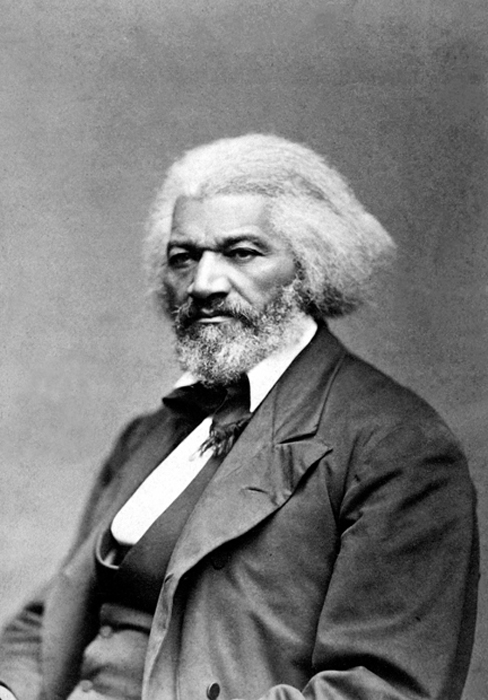What to the slave is the Fourth of July?
7/4/2024, 6 p.m.
This week, we present a portion of Frederick Douglass’ powerful speech “What to the slave is the Fourth of July?” Delivered on July 5, 1852, this address remains a poignant and searing critique of our nation’s founding principles versus its practices.
Douglass, born into slavery and later becoming a leading abolitionist, delivered this speech to the Rochester Ladies’ Anti-Slavery Society. His words cut to the heart of American hypocrisy, questioning how a nation celebrating freedom could deny it to millions of enslaved people.
The relevance of Douglass’ speech extends far beyond its historical context. It serves as a mirror, reflecting our ongoing struggles with racial justice and equality. His call for the nation to live up to its professed values of freedom and equality resonates as powerfully today as it did over 170 years ago.
 Frederick Douglass
Frederick DouglassWhat, to the American slave, is your 4th of July? I answer: a day that reveals to him, more than all other days in the year, the gross injustice and cruelty to which he is the constant victim. To him, your celebration is a sham; your boasted liberty, an unholy license; your national greatness, swelling vanity; your sounds of rejoicing are empty and heartless; your denunciations of tyrants, brass fronted impudence; your shouts of liberty and equality, hollow mockery; your prayers and hymns, your sermons and thanksgivings, with all your religious parade, and solemnity, are, to him, mere bombast, fraud, deception, impiety, and hypocrisy — a thin veil to cover up crimes which would disgrace a nation of savages.
There is not a nation on the earth guilty of practices, more shocking and bloody, than are the people of these United States, at this very hour. Go where you may, search where you will, roam through all the monarchies and despotisms of the old world, travel through South America, search out every abuse, and when you have found the last, lay your facts by the side of the every day practices of this nation, and you will say with me, that, for revolting barbarity and shameless hypocrisy, America reigns without a rival …
Behold the practical operation of this internal slave-trade, the American slave-trade, sustained by American politics and American religion … Fellow-citizens, this murderous traffic is, to-day, in active operation in this boasted republic … I see the bleeding footsteps … on the way to the slave-markets, where the victims are to be sold like horses, sheep, and swine … My soul sickens at the sight … But a still more inhuman, disgraceful, and scandalous state of things remains to be presented. By an act of the American Congress … slavery has been nationalized in its most horrible and revolting form … The Fugitive Slave Law makes Mercy to them, a crime; and bribes the judge who tries them. An American Judge gets ten dollars for every victim he consigns to slavery, and five, when he fails to do so
… Let this damning fact be perpetually told … that, in tyrant-killing, king-hating, people-loving, democratic, Christian America, the seats of justice are filled with judges, who hold their offices under an open and palpable bribe …I take this law to be one of the grossest infringements of Christian Liberty, and, if the churches and ministers of our country were not stupidly blind, or most wickedly indifferent, they, too, would so regard it . . . they are utterly silent in respect to a law which robs religion of its chief significance, and makes it utterly worthless to a world lying in wickedness …
Allow me to say, in conclusion … I do not despair of this country. There are forces in operation, which must inevitably, work the downfall of slavery. “The arm of the Lord is not shortened,” and the doom of slavery is certain. I, therefore, leave off where I began, with hope.








